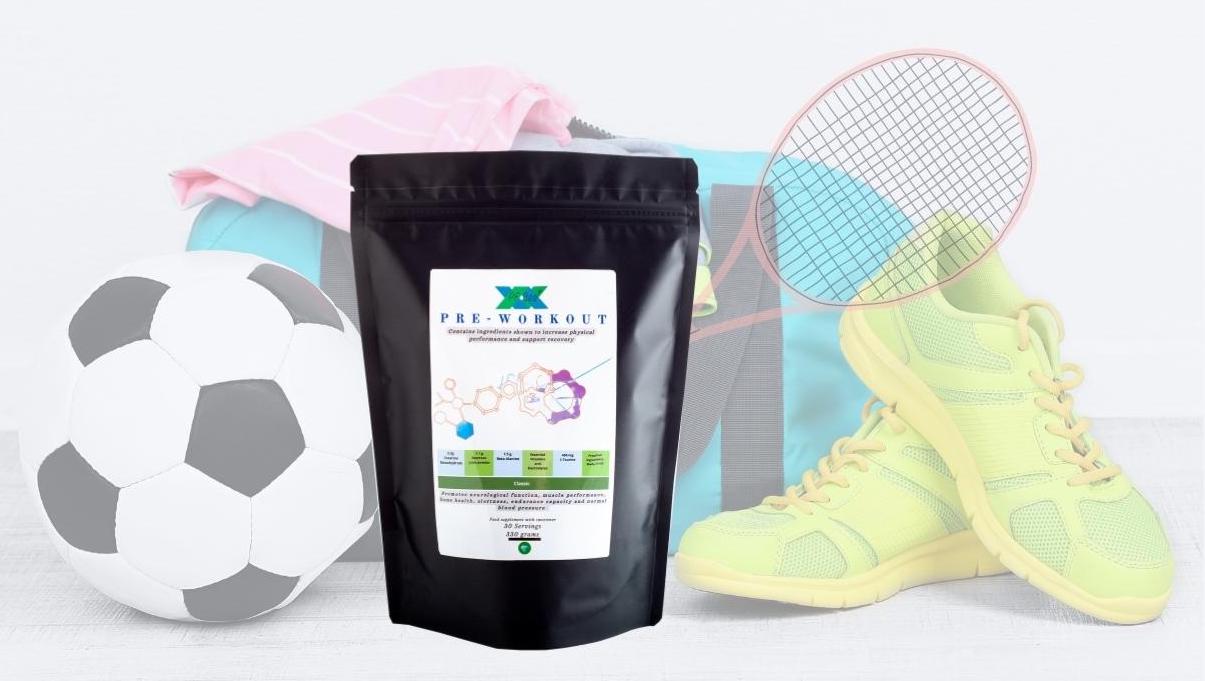
What nutrition could help before intense workout sessions?
Intense workout puts a lot of demand on the body and mind. Whether it is gym workout, sports training, jogging or cycling; pre workout nutrition should fulfil three basic requirement
1. Prime the body for peak performance
2. Protect the body from undue injury during workout
3. Promote physical recovery after workout, so the next workout or training can be sooner
Some of the key nutrition ingredients for these goals are
- Creatine: This key ingredient has below authorised health claim according to EFSA.
“Creatine increases physical performance in successive bursts of short-term, high intensity exercise”
“Daily creatine consumption can enhance the effect of resistance training on muscle strength in adults over the age of 55”
These claims are valid for a minimum dosage of 3g daily intake.
- Caffeine: Commonly consumed through coffee, Caffeine is associated with increased alertness, energy, and ability to concentrate. It is important to remember that caffeine is beneficial in low to moderate dosage ideally around 200 to 250 mg. Higher dosage of caffeine (more than 300 mg) can lead to negative effects.
- Nitric oxide booster: Nitric oxide is a gas that is naturally produced in the body that increases blood flow by relaxing blood vessels and hence plays a role in boosting strength, endurance and exercise performance. Studies have shown that nitric oxide may may help alleviate muscle soreness. Eating foods rich in nitrates helps boost Nitric oxide levels in the body. Prominent amongst these foods are beetroot and green vegetables. Studies have shown that combining L-arginine and L-citrulliine can significantly iincrease their efficacy in production of nitric oxide ion the body. (https://www.chiroeco.com/combining-l-arginine-and-l-citrulline-to-improve-circulation/).
- Electrolytes (sodium, potassium, magnesium): Optimal electrolytes balance and hydration before workout goes a long way in achieving peak workout performance and building muscles. Further more potassium has an important role in muscle function and maintaining normal blood pressure. Electrolyte imbalance can also cause muscle twitching and muscle cramps.
- Beta-alanine: it can help prevent muscle soreness, reduce muscle fatigue and enhance athletic performance leading to better workout gains
- Vitamin D3: Increases muscle protein synthesis, ATP concentration leading to better exercise capacity, and physical performance. Vitamin D3 is also known to reduce inflammation, pain, and improve calcium absorption, thus protecting bones during workout.
- Vitamin B6 and B12: Helps build and keep muscles strong by helping us absorb sufficient amino acids. Proven to promotes red blood cell production and reduction of tiredness and fatigue
- Folic acid: Improves blood flow and enable you to work out for longer and harder. Helps to make red and white blood cells, utilise carbohydrates as energy, and make healthy DNA
- Calcium: Research has shown that timing of calcium supplementation, and not just the amount of supplementation, may be an important factor in how the skeleton adapts to exercise training. In one study, intense training was found to be associated with substantial decreases in bone mineral density among competitive road cyclists. Pre-exercise supplementation of Calcium, however, resulted in significant less of a decrease. (ref: https://www.sciencedaily.com/releases/2013/06/130618125028)
- Carbohydrates: Carbohydrate is an important energy source during workout. Maintaining right levels of carbohydrates during workout will help achieve optimal performance and prevent muscle breakdown. An optimal combination of fast and slow release carbohydrates might be better suited based on intensity and duration of exercise.
